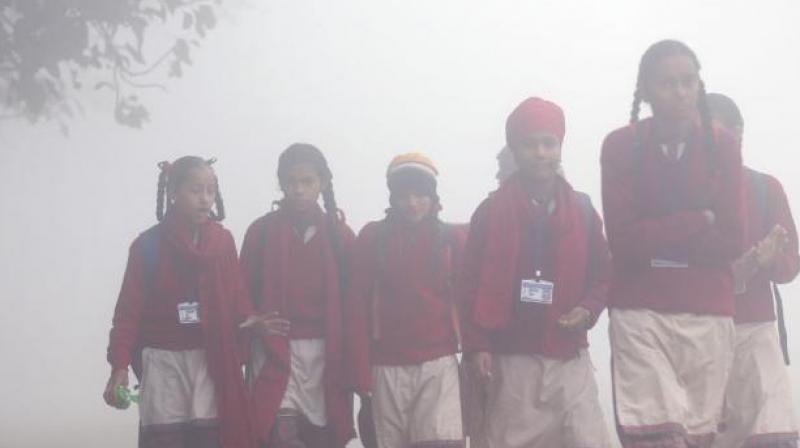Why Punjab Didn’t Extend Winter Holidays Despite Bitterly Cold Weather ??
A sharp bite in the air, frosted windows, and hushed streets muffled by dense fog – Punjab is embracing the grip of winter. Yet, unlike previous years, this season’s frigid embrace hasn’t extended to the school calendar. While several neighboring states granted students respite from the bone-chilling temperatures with extended winter holidays, Punjab’s classrooms remain abuzz with activity. This decision, met with raised eyebrows and a touch of grumbling, begs the question: why didn’t Punjab budge?
Balancing Safety and Syllabus: The Minister’s Reasoning
Education Minister Harjot Singh Bains recently addressed the concerns, shedding light on the rationale behind this seemingly unsympathetic stance. His explanation hinges on three key factors:
1. Recovering from a Rain-Ravaged 2023:
Last year, Punjab grappled with unprecedented floods and torrential rains, leading to extensive disruptions in the academic calendar. Schools bore the brunt of these natural disasters, forcing closures and compromising precious learning hours. To compensate for this lost time, the current session (2023-24) already faced the pressure of squeezing in additional teaching days. Extending the winter break would further jeopardize this delicate balance, potentially jeopardizing the minimum requirement of 230 instructional days mandated by the Central Board of Secondary Education (CBSE).
2. Impending Exams and Political Crossroads:
Punjab’s students face two crucial sets of examinations in the coming months. Board exams for Classes 10 and 12 are scheduled for mid-February, while Classes 8 and 5 will sit for their exams in March. These crucial assessments coincide with the upcoming Lok Sabha elections, leading to logistical challenges in conducting exams smoothly amidst potential disruptions. With limited time at hand, maximizing every school day becomes paramount to ensure thorough preparation and a stress-free examination experience for students.
3. Prioritizing Learning While Ensuring Safety:
While acknowledging the harsh weather conditions, the Education Minister emphasized the importance of uninterrupted learning. Schools, he assured, are taking adequate precautions to ensure the well-being of students: heated classrooms, flexible school timings, and transportation provisions are just some of the measures implemented to mitigate the impact of the cold. He further stressed that education, beyond textbooks, thrives on the social interaction and routine fostered by regular school attendance.
Navigating a Complex Landscape: Understanding the Challenges
While the government’s reasons are valid, the decision to forgo extended winter holidays doesn’t come without its challenges. Parents understandably worry about their children braving the biting cold, especially younger students. Concerns about transportation difficulties, potential health risks like frostbite, and the overall impact on students’ well-being remain valid. Striking a balance between academic progress and student safety necessitates a holistic approach that addresses these concerns head-on.
Possible Solutions: A Path Forward
Several measures could bridge the gap between education and comfort:
- Flexible Timings: Schools could adopt a staggered schedule, opening and closing later to avoid the coldest hours.
- Online Learning Options: Implementing temporary online learning modules for specific subjects could supplement classroom lessons during extreme weather events.
- Enhanced Safety Measures: Providing warm clothing, ensuring functional heating systems in classrooms, and organizing indoor physical activities can create a more conducive learning environment even during harsh winters.
- Open Communication: Maintaining open communication channels between schools, parents, and students is crucial to address concerns, implement solutions, and adapt to changing weather conditions.
Conclusion: A Balancing Act with Many Stakeholders
The decision to keep schools open amidst biting winter winds is a complex one, leaving some students shivering at their desks while others nod in understanding. Ultimately, it’s a balancing act, juggling academic obligations with student well-being, while navigating the unpredictable terrain of weather and political calendars. Open communication, creative solutions, and a focus on both learning and comfort can help Punjab pave a path that keeps classrooms humming, even as the winter chill lingers outside.
